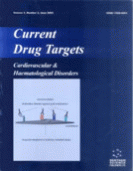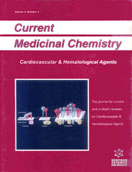Abstract
Analgesics as fixed-dose combination are very useful for fast pain relief.
Overdose or chronic use of analgesics, especially fixed doses form, develop mild to
severe adverse effects and sometimes damage various organs like the liver, kidney and
brain. Tramadol hydrochloride/paracetamol (THP) is a fixed-dose combination (37.5
mg of Tramadol hydrochloride and 325 mg of paracetamol) extensively used for the
treatment of moderate to severe pain. Administration of THP upon animal model
severely disturbed hepatic and renal biochemical parameters, which leads to altering
normal cellular homeostasis. In this context, our recent study established that the
application of Tramadol hydrochloride/paracetamol produced deleterious effects on
haematological parameters in the experimental murine model. 1.12 g/300 ml and 1.68
g/300 ml chronic administration of Tramadol hydrochloride/paracetamol (THP)
decrease the packed cell volume (PCV), haemoglobin (Hb), mean cell volume (MCV),
means cell haemoglobin (MCH) and increase the mean corpuscular haemoglobin
concentration (MCHC) and white blood cell (WBC) in an experimental animal model.
Other haematological parameters likes red blood corpuscle (RBC), reticulocyte (RT),
haematocrit (HCT) did not show any significant changes upon animals. Increased
MCHC inhibits the oxidation process and energy balance, whereas elevated WBC
levels indicate immune system damage. Decreased haemoglobin and PCV indicate that
Tramadol hydrochloride/paracetamol (THP) is an indirect cause of anaemia. It may be
concluded that prolonged or chronic administration of THP may cause severe
thrombocytopenia, leading to the failure of the immune system, anemia, and a very low
erythrocyte count. These side effects increase according to the dosage and duration of
the treatment. So clinicians, patients and pharmacists should be aware of the
deleterious effects of Tramadol hydrochloride/paracetamol (THP) on haematological
parameters when using this combination.
Keywords: Fixed-dose combination, Hematologic parameters, Murine model, Tramadol hydrochloride/paracetamol.




















